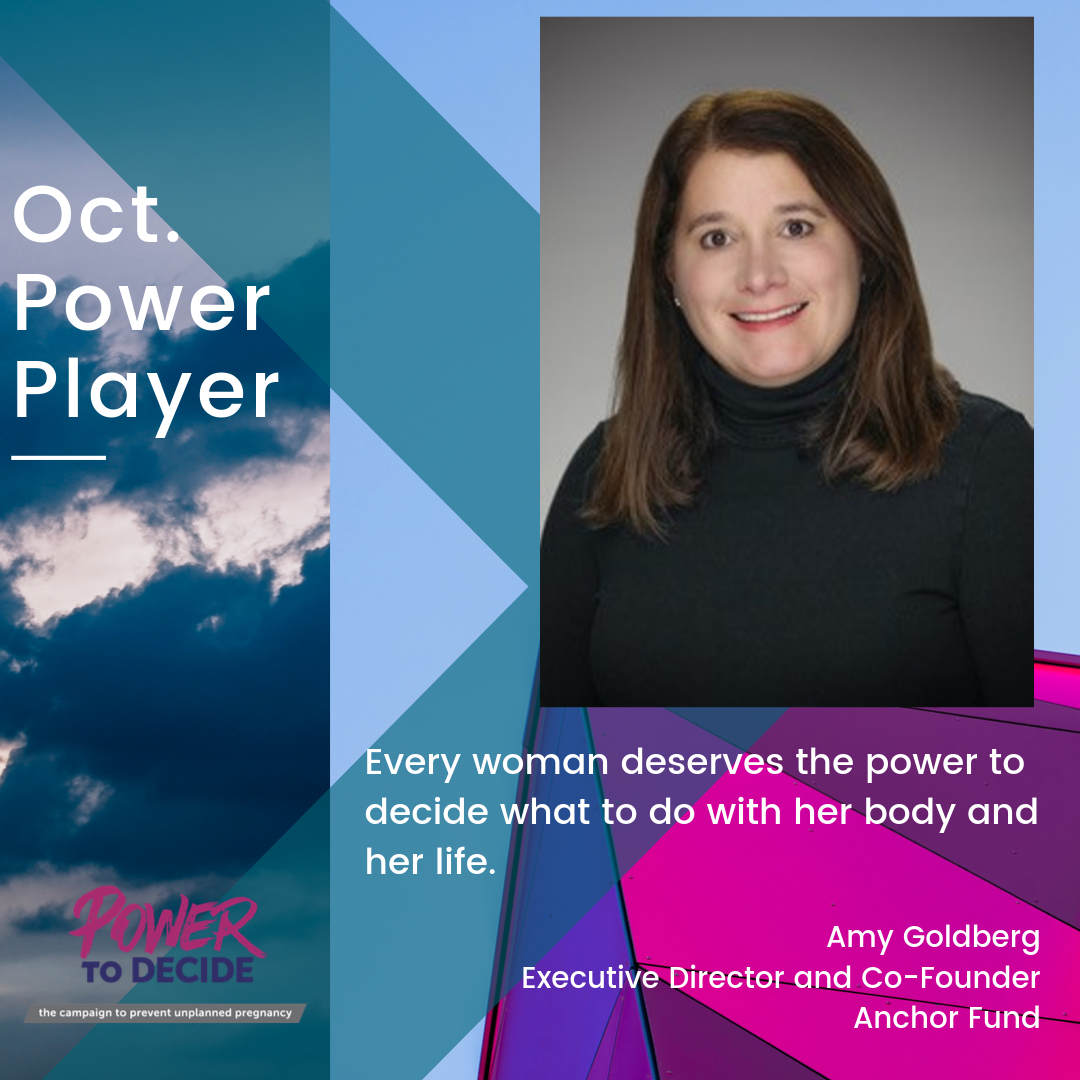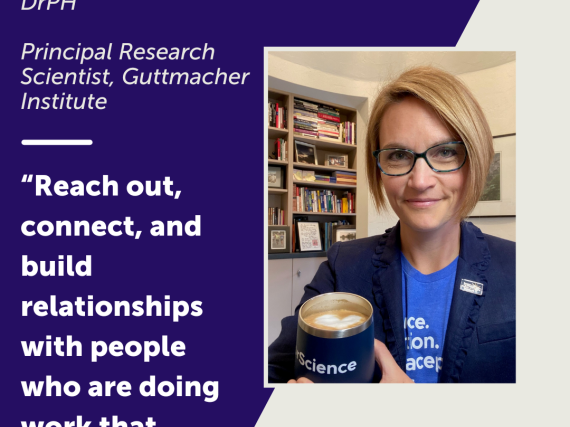October 2019 Power Player
At Power to Decide, we’re committed to uplifting the many individuals on the ground doing the work that matters most. Each month we highlight an individual who is championing the effort to give young people the power to decide if, when, and under what circumstances to get pregnant and have a child. In honor of Domestic Abuse Awareness Month check out this month's Power Player profile.
Amy Goldberg
Executive Director and Co-Founder, Anchor Fund
What work have you done to ensure that young people have the power to decide if, when, and under what circumstances to get pregnant and have a child?
The Anchor Fund provides emergency financial support through partnerships across Washington, DC with leading domestic abuse and sexual violence organizations. Domestic violence is the third leading cause of homelessness among families nationwide, and while our work largely helps underserved populations our clients come from all backgrounds.
When cases come across an advocate’s desk where a patient needs women’s health care, but they can’t pay for it, we step in. In some cases, these women (and they are largely women) have no insurance or their insurance won’t cover something such as therapy after leaving an abusive relationship. We have also helped college students who don’t want a hospital bill to show up on their parents’ insurance after they’ve been assaulted.
Beyond paying for hospital visits, medical bills, and prescriptions, we also help women pay for the costs associated with leaving an abuser. One form of domestic abuse is reproductive coercion. It is common in abusive relationships for women to face sexual assault from their abusers as well as being forced into have many pregnancies. We have helped survivors with 5, 6, or 7 children; their partners kept them pregnant over the course of the relationship as a means of control. When they and their children leave, they need a lot of support and the women we help have no other way to pay for their expenses in order to break the cycle of violence. To date we’ve helped over 700 people and distributed over $275,000.
How did you get started in your field? What is your driving force?
In 2013 I was volunteering for a domestic abuse organization that provides pro bono legal services. The need for emergency funding revealed itself as so many survivors needed financial support. Transportation costs, security deposits, rent, and health care are only a few of the needs that grow in these situations. And they’re all crucial to helping women leave and stay away from their abusers. I wanted to create a fund to help survivors break the cycle of abuse. Since starting the Anchor Fund in 2014, we have over 20 partners across the DC metro area. Regularly new organizations learn about us and the support we provide to survivors. I’m driven by the stories I hear of survivors who face horrible circumstances and persevere. I want to help these women to live safe, secure, and happy lives. I believe that if more women helped women achieve those goals than fewer women would face physical, sexual, and emotional abuse. In the next five years we plan to go deeper in the DC Metropolitan area to partner with more organizations and agencies with the intent of helping more women.
What advice would you give to someone looking to effect change in the field that you currently work in?
In one word, perseverance. If you have an idea to affect change, stick with it. It takes time to build the organization that you envision and only through perseverance and patience will it happen. The Anchor Fund started with only one partner and we now have over 20. We came up with our model, our programming, and we ignored people who asked why we don’t do different or more programming. Stay focused and never give up.
Why should someone care about ensuring that all people—regardless of who they are or where they live—have access to the information and contraception they need to live their best life story?
Every woman deserves the power to decide what to do with her body and her life. Child raising is physically demanding and takes a lot of financial and emotional strength as well. I believe to not allow a woman that decision is a form of abuse.
I don’t know why anyone wouldn’t care that each and every woman has the power to decide her own reproductive future. I would never change my decision to have three children, but every woman deserves the power to make that decision for themselves.
Is there a highlight of your work in conjunction with our organization that you’d like to share?
I’m excited to see your work with BCBenefits and I hope that in the future we can connect and support each other’s work.


